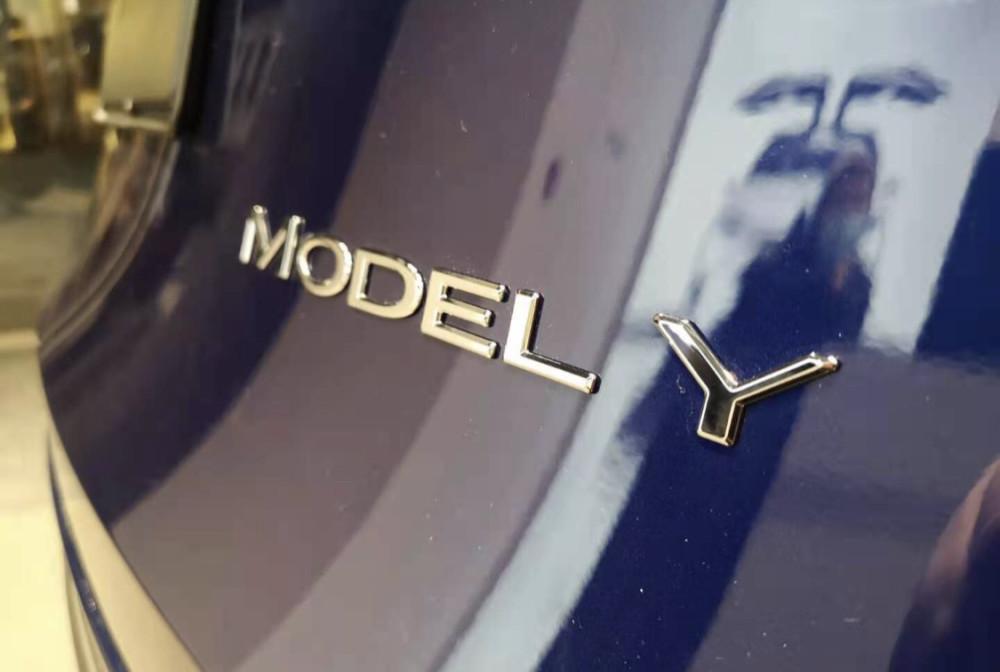As the year draws to a close, Chinese often like to buy a car during the New Year. If you choose to buy a Tesla electric car now, you will need to spend tens of thousands of dollars more.
Tesla China's official website showed on December 31 that the starting price of the Model 3 rear-wheel drive version was adjusted to 265652 yuan, an increase of 10,000 yuan from the previous starting price; the starting price of the Model Y rear-wheel drive version was raised to 301,840 yuan, which was about 21,000 yuan higher than the previous price.

Tesla has raised prices in the U.S. more than a dozen times this year and raised the price of the Model Y long-endurance version at least six times; Tesla's price increase in China is something that has only recently happened.
A Tesla Model 3 owner who has just picked up the car told the first financial reporter that since she ordered the Tesla electric car for a month and a half, this Model 3 standard endurance version has experienced three price increases, and the price has risen by a total of 30,000 yuan.
The intensive price increase occurred after the concentrated price cuts in the first half of this year. Tesla has cut prices in China several times over the past year. On July 30 this year, Tesla lowered the price of the Model 3 standard endurance upgrade by 15,000 yuan, and the starting price after subsidies was only 235,900 yuan, setting a new low. Previously, Tesla also once reduced the price of the Standard Edition of the Chinese Model Y to 276,000 yuan.
Tesla said that the vehicle price adjustment reflects the actual situation of cost fluctuations. Some analysts also said that due to the large number of people who ordered cars at the end of the year, the price increase also reflected the change in supply and demand. A car owner who just booked the Tesla Model Y high-performance version two weeks ago told the first financial reporter that it is expected to wait until around March next year to pick up the car.
Zhang Junyi, managing partner of Oliver Yvrux Consulting, told the first financial reporter: "The cost of auto parts is rising, and Tesla is not short of orders at the end of the year, and the price increase is to ensure profits." He believes that Tesla will face pressure on price increases in China in the short term, but the price will still be adjusted back after a while, because Tesla is priced according to cost.
Tesla's 2020 earnings report shows that the average sales price per electric vehicle is down 11% from a year ago, as more consumers turn to the lower-priced Model 3 and Model Y models.
At Tesla's latest quarterly earnings release, the company warned of rising raw material costs and said it was facing the challenge of further boosting profits. Tesla CEO Musk also said on recent social media: "The supply chain nightmare is not over, and it will continue next year." ”
Tesla has significantly reduced the cost of producing electric vehicles in China in the past two years by continuously increasing the localization rate in China, and the localization rate of Tesla's supply chain has exceeded 95%.
Tesla's market capitalization has topped $1 trillion over the past year, boosted by favorable delivery figures and earnings earnings, though shares fell 1.5 percent on the day after the latest recall.
Tesla's successful "China story" is undoubtedly the biggest driver that helped it quickly gain market leadership. According to Tesla's third-quarter production and delivery data and data from the China Association of Passenger Vehicles, more than half of Tesla's electric vehicles are currently produced in China. In the first nine months of this year, Tesla's sales in China contributed about a quarter of Tesla's global revenue, and the soaring stock price also made Tesla CEO Musk the richest person in the world.
Bill Russo, founder of automotive consultancy Automobility, said that in 2021, 4 out of every 5 electric vehicles sold in China will be local car brands, and Tesla is the only foreign brand to enter the top ten of Chinese electric vehicle manufacturers.
The rising new forces of Local Car Manufacturing in China have put a lot of pressure on Tesla and forced it to adopt an aggressive "low-price strategy" in the Chinese market.
"Tesla's entry into China has driven the development of the entire electric vehicle market, achieved the purpose of making the cake bigger, and allowed more consumers to begin to accept electric vehicles, so that the new Chinese car-making forces that later entered the market have opportunities." Luo Wei told the first financial reporter, "China's electric vehicle manufacturers including Weilai, Xiaopeng, Ideal, WM, etc. have increased their market share, which may give Tesla pressure to reduce prices in China." ”
This also means that in the long run, Tesla's market share in China will continue to be eroded. According to a report released by investment bank Morgan Stanley this year, Tesla's share of The Chinese pure electric vehicle market may be about 15% this year, and with the expansion of Local Electric Vehicle Manufacturers in China, Tesla's market share in China is expected to fall below 7% by 2030.